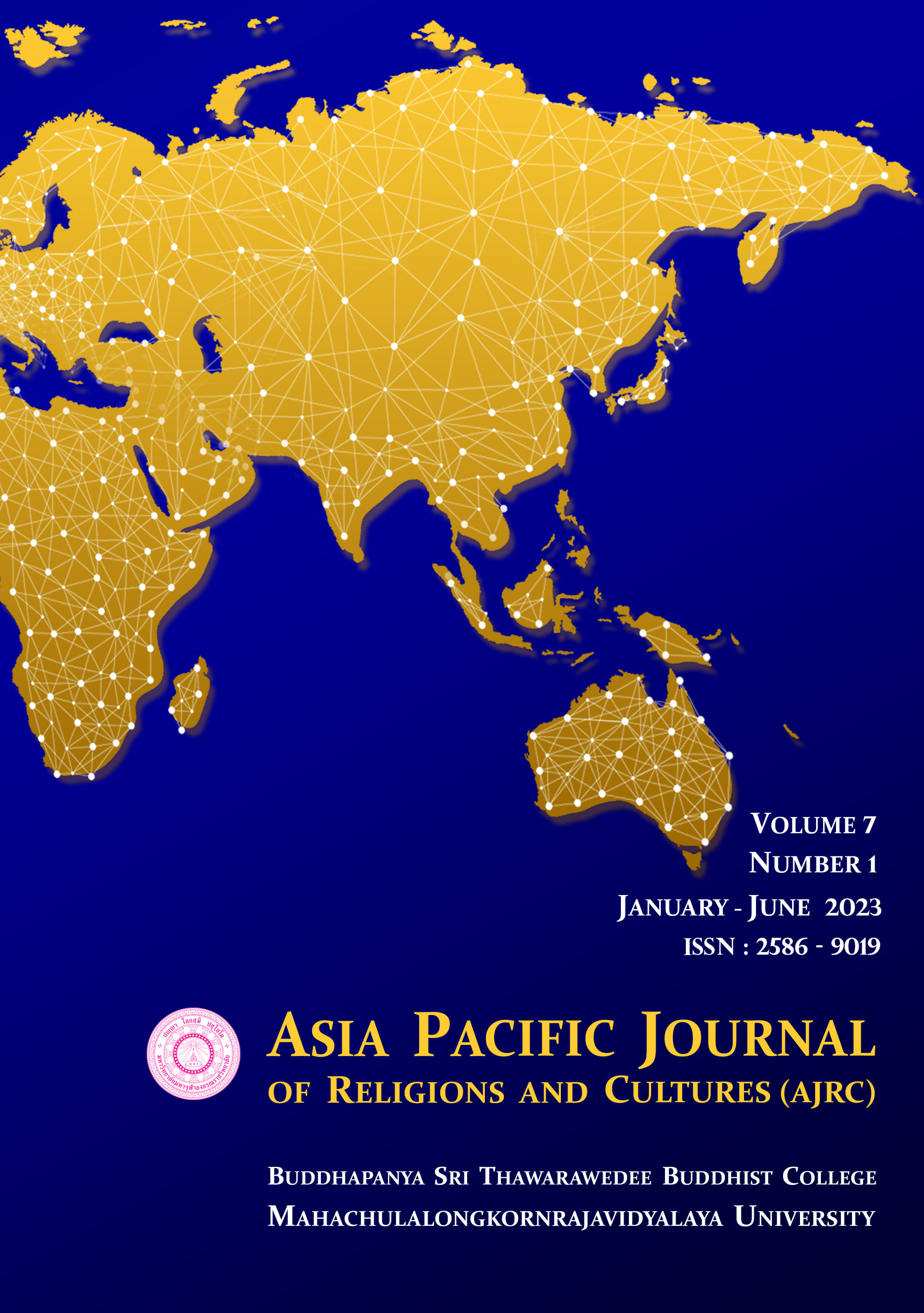WALKING TOWARDS FREEDOM: THE MODEL AND CONTEMPLATIVE WISDOM PRACTICING PROCESS IN ACCORDANCE WITH DHUTANGAVATTA
Main Article Content
Abstract
Abstract
A study on “Walking towards freedom: The model and contemplative wisdom practicing process in accordance with Dhutangavatta” objectivized three aims,i.e. 1) to investigate religious hiking-based for mental training; 2) to analyze religious hiking-based journey to freedom and 3) to develop a model of monkhood mindful journey in practicing religious hiking. This research was a Mixed Methods Research of a qualitative research and action research focusing on the targeted group of 15 interviewees on sites through conducting in-depth interviews and the focus groups of the related persons including participant observation over the activities to develop a model and a process of the religious hiking-based for mental training involving 1) a knowledge set e.g. the 13 religious-hiking methods, history and principles and 2) the religious-hiking activity sets on mental training for 10 days with pre-post evaluations. The results revealed that: Under the pre-post evaluation of 15 involvers met 2 differences, i.e. 1) before evaluating all activities participants partially understood the religious hiking-based mental practice process and the activities using the dharma practice process for them needed additional studies which demanded additional development; and 2) with all these post-activities, most participants better understood the religious-hiking-based mental practices, activities of processing dharma practices, and emphasizing knowledge-given which most participants better understood.
Article Details

This work is licensed under a Creative Commons Attribution-NonCommercial-NoDerivatives 4.0 International License.
References
JirapornChiwadham (2007). Analysis of Life Development by Principles Found in the Tipitaka. [Online]. Source:file:///C:/Users/Lenovo/Downloads/adminpali.
PrawesWasi (2007). The Thai University with the Cittapaññā Studies and the EducationalTriangulation. Bangkok: Office of the Health Promotion Fund.
PornpojJullajaroendul. (2020).On the Auspicious Occasion of Centenary Birthday of His Holiness SomdejPhraYannasaṁvara, Supreme Patriarch Sakalamahasangkhaparinãyaka.[Online]. Source: http:////blog.eduzones.com/ppall/87221.
His Venerable PhrakhruvinaidhornNormchaiSudhammo. (2018). The DesiredDhutangavatta in the Current Thai Societies. Dissertation of Buddhism. Graduate School: Mahachularajvidyalaya University.
PhraDhammakosãcãraya. (2006). Misery Liberation Manual: Complete Text. Bangkok: Dhammasabha Publishing Office.
PhraDhammapitaka. (1995). Buddhadhamma: Improved and Expanded Version. 6th ed. Bangkok: Mahachularajvidyalaya Publishing Office.
PhraBrahmagunabhorn (2014). Dictionary of Buddhism: Code of Dhamma Version. 27th ed. Bangkok:Mahachularajvidyalaya Publishing Office.
Phrabuddhaghosathera. (2014). Visuddhimagga: translated and complied by SomdejPhrabuḍhācāraya (ĀjĀsabhamahathera).10th ed. Bangkok: Dhana Press Company.
His Venerable Phra Manas Kantasīlo. (2013). “The Mental Freedom Concept in the Theravadan Buddhism.”Thesis of Master of Buddhism.Graduate School: Mahachularajvidyalaya University.
PhramahaVicharnSuvichãno. (1999). “The Process of Training the Buddhist Personnel of PhraBodhiyãnathera (Cha Subhaddo)”Thesis of Master of Buddhism.Graduate School: Mahachularajvidyalaya University.
Mahamakut Buddhist University (2000). Milinda Riddle.2nd.ed. Bangkok: Mahamakut Buddhist University Publishing Office.
SomdejPhrabuḍhācāraya. (1990). Visuddhimagga Scripture Vol.1. Wat Maha Taj. Published for His Majesty Merit on the Occasion of Funeral Ceremony of SomdejPhrabuḍhācāraya (ĀjĀsabhamahathera). Bangkok: Amarin Printing Group.
Siri Anya. (2006). Vimutta: Dimensional Wonder of the Inner World. Bangkok: Dhammaniti Press Company Limited.


